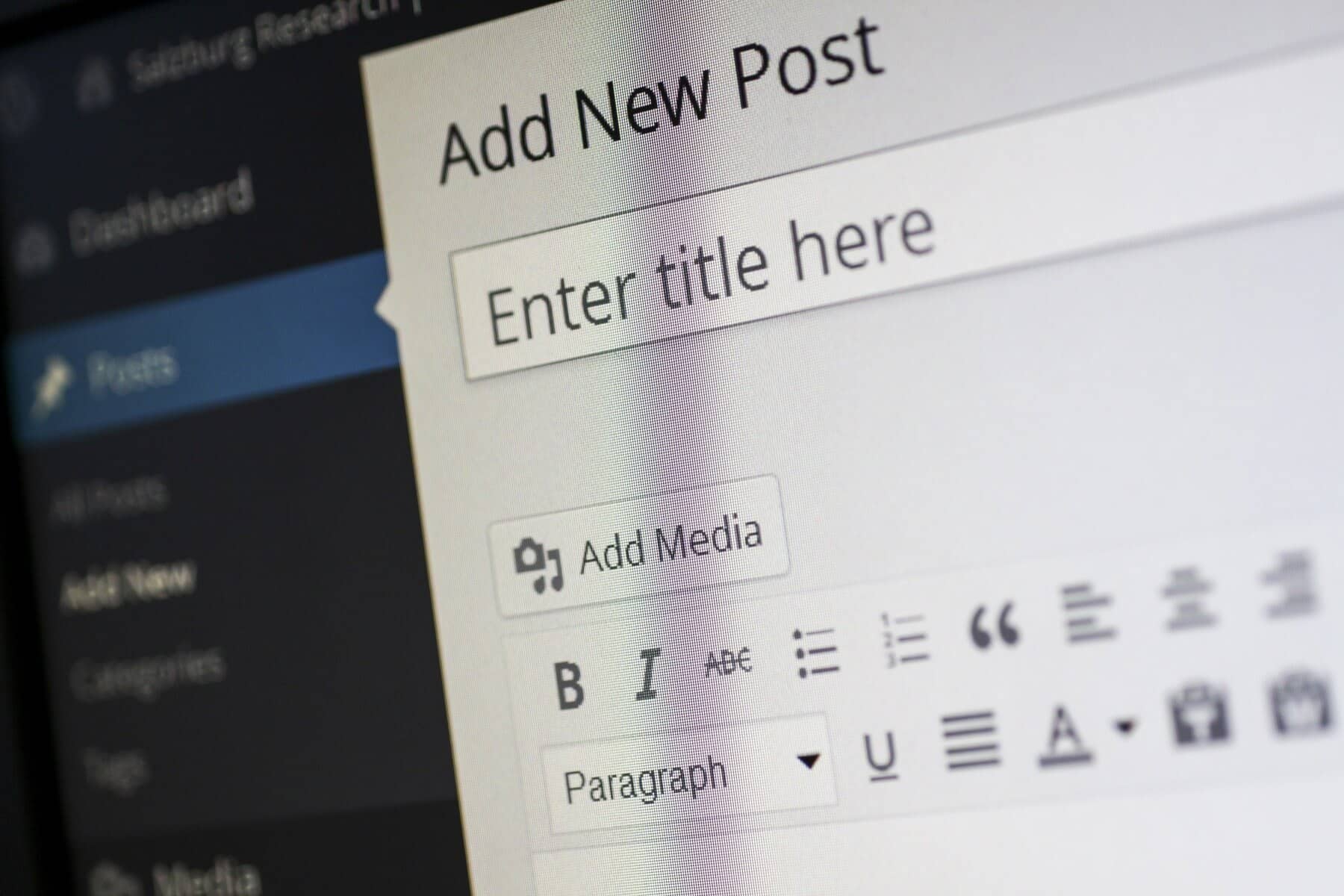
Maintaining a WordPress website is more than just a matter of convenience; it is a critical aspect of ensuring your site’s longevity, security, and effectiveness. Regular maintenance helps keep your website running smoothly and efficiently, protecting it from potential threats and performance issues. In this blog, we’ll explore the average costs associated with WordPress website maintenance, breaking down the various components and factors that contribute to these expenses. By understanding these elements, you can better plan your budget and ensure your website remains in top shape.
The Importance of Regular Website Maintenance
Website maintenance is essential for several reasons, all of which contribute to the overall health and effectiveness of your site. Here’s why keeping your WordPress website well-maintained is crucial:
- Security: Regular updates and monitoring help protect your site from vulnerabilities and potential hacking attempts. As cyber threats evolve, keeping your site secure is paramount to safeguarding sensitive data and maintaining user trust.
- Performance: A well-maintained site performs better, with faster load times and smoother user interactions. Performance optimization ensures that your website meets user expectations and retains visitors.
- Updates: WordPress, along with themes and plugins, frequently release updates that introduce new features, fix bugs, and address security issues. Regular updates are necessary to keep your site functioning properly and securely.
- Backups: Regular backups are crucial for data recovery in case of accidental loss or technical issues. Backups ensure that you can restore your site to its previous state if something goes wrong.
- SEO: Proper maintenance helps maintain SEO best practices, ensuring that your site remains visible in search engine results and continues to attract organic traffic.
Key Components of WordPress Website Maintenance
Understanding the components involved in WordPress website maintenance helps you grasp what contributes to the overall cost. Let’s delve into each key component:
Software Updates
-
- WordPress Core Updates: WordPress regularly releases core updates to improve functionality and security. Keeping your WordPress installation up to date is vital to prevent vulnerabilities and enhance performance.
- Theme and Plugin Updates: Themes and plugins also receive updates to maintain compatibility with the latest WordPress version and to address any security issues. Regular updates are essential to ensure that your website functions correctly and remains secure.
Security Monitoring
-
- Implementing Security Measures: Effective security monitoring involves setting up firewalls, conducting regular malware scans, and employing intrusion detection systems. These measures help protect your site from potential threats and ensure that any security breaches are promptly addressed.
Backup Services
-
- Regular Backups: Backing up your website regularly is crucial for data protection. Backup solutions can be manual or automated, and the frequency of backups can vary based on your needs. Regular backups ensure that you can quickly restore your site in case of data loss or technical issues.
Performance Optimization
-
- Caching Solutions: Implementing caching solutions helps improve your site’s load times and overall performance. Caching reduces server load and speeds up page delivery to users.
- Image Optimization: Optimizing images ensures that they are loaded efficiently without compromising quality, contributing to faster page load times and a better user experience.
- Server Performance Enhancements: Regularly monitoring and optimizing server performance helps ensure that your website remains responsive and can handle traffic effectively.
Technical Support
-
- Troubleshooting and Support: Access to technical support is essential for resolving issues, troubleshooting conflicts, and handling emergencies. Professional support ensures that any problems are addressed promptly, minimizing downtime and potential disruptions.
Content Management
-
- Updating Content: Regular updates to your website’s content, including blog posts, pages, and multimedia, are important for keeping your site relevant and engaging. Fresh content helps attract and retain visitors and improves your site’s SEO.
Average Costs for WordPress Website Maintenance
The cost of maintaining a WordPress website varies based on several factors, including the complexity of the site, the level of support required, and whether you choose a DIY approach or hire a professional. Here’s a detailed breakdown of average costs:
DIY Maintenance
-
- Software Updates: $0 – $50 per year if you handle updates yourself. This includes updating the WordPress core, themes, and plugins.
- Security Tools: $0 – $200 per year for security plugins and services. This cost includes basic security measures and monitoring tools.
- Backup Solutions: $0 – $100 per year for backup plugins and services. Automated backups can range in cost depending on the frequency and storage options.
- Performance Optimization: $0 – $150 per year for optimization plugins and tools. This includes caching solutions and image optimization plugins.
Professional Maintenance Services
-
- Basic Plans: $50 – $150 per month. Basic maintenance plans typically include regular software updates, basic security measures, and occasional technical support. These plans are suitable for small websites with minimal maintenance needs.
- Standard Plans: $150 – $300 per month. Standard plans offer more comprehensive services, including regular backups, performance optimization, and enhanced security measures. These plans are ideal for medium-sized websites with more complex needs.
- Premium Plans: $300 – $600 per month. Premium plans provide extensive support, including advanced security, dedicated technical support, and frequent performance reviews. These plans are best suited for large websites or businesses that require a high level of maintenance and support.

Factors Influencing Maintenance Costs
Several factors can affect the cost of WordPress website maintenance. Understanding these factors can help you make informed decisions and manage your budget effectively:
- Website Complexity: Larger and more complex websites with numerous pages, custom features, and integrations require more intensive maintenance. This complexity can increase the cost of maintenance services.
- Traffic Volume: High-traffic websites may need more robust performance and security solutions to handle increased load and ensure smooth operation.
- Custom Features: Websites with custom themes, plugins, or integrations may require specialized support, which can affect maintenance costs.
- Service Provider: Costs can vary based on the provider’s expertise, reputation, and the level of service offered. Researching and comparing different providers can help you find a solution that fits your budget and needs.
Tips for Managing Your Maintenance Budget
To effectively manage your website maintenance budget, consider the following tips:
- Evaluate Your Needs: Assess the specific needs of your website to choose an appropriate maintenance plan. Consider factors such as site complexity, traffic volume, and the level of support required.
- Compare Providers: Research and compare different maintenance service providers to find one that offers the best value for your money. Look for providers with a track record of reliable service and positive customer reviews.
- Consider Long-Term Costs: While DIY maintenance might seem cost-effective initially, professional services can save you time and prevent costly issues in the long run. Weigh the benefits of professional support against the potential risks of handling maintenance yourself.
Conclusion
Understanding the average costs of WordPress website maintenance is essential for effective budgeting and planning. Regular maintenance is crucial for keeping your site secure, efficient, and competitive. By evaluating your specific needs, comparing service providers, and considering long-term costs, you can ensure that your WordPress website remains in optimal condition.
If you need assistance with WordPress website maintenance, contact Rocket Web Development. Our team provides tailored solutions to keep your site running smoothly, allowing you to focus on your business goals. Let us handle the technical aspects while you enjoy the benefits of a well-maintained website.
